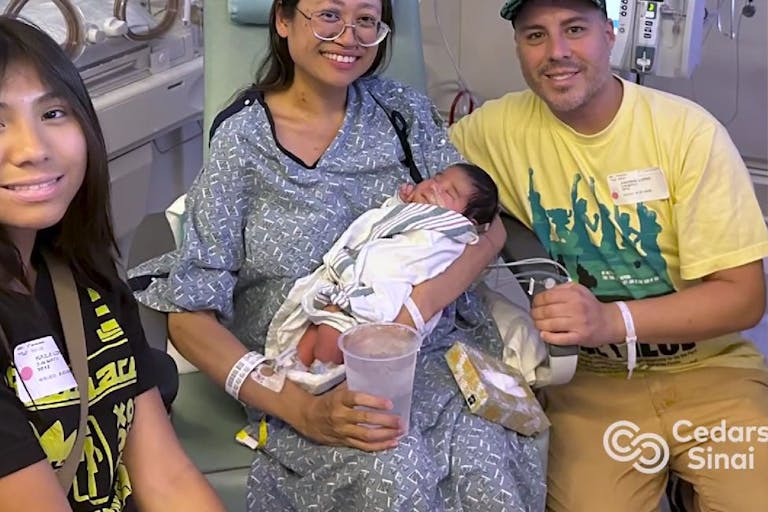JUST IN: We reprinted a literary essay, “Abortion Isn’t Beautiful,” from the anthology Choice Words: Writers on Abortion this week. Some readers responded to the piece arguing that the framing was stigmatizing and hurtful. THREAD: rewire.news/article/2020/0…

Pro-abortion website publishes ‘Abortion is not beautiful’ essay, and readers are enraged
Pro-abortion website publishes ‘Abortion is not beautiful’ essay, and readers are enraged
Last week, the pro-abortion site “Rewire” reprinted an essay from Annie Finch, a notable poet who was won multiple awards for her work. Her essay, titled “Abortion Isn’t Beautiful,” explored the sad reality of her abortion experiences, and how they negatively affected her. But within mere days, readers had responded with such outrage that Rewire was forced to respond.
On Twitter, Rewire acknowledged readers who said Finch’s essay was “stigmatizing and hurtful.” They continued, “We hear you and want to recognize your valid points of view while standing firm in our decision to publish the author’s personal feelings, artistic interpretations, and ruminations on abortion as a subject—one that is complicated and different for everybody.”
So as a response, Rewire published a new article in which five women detailed why they believe their abortions were, in fact, “beautiful.” Yet the pain surrounding Finch’s abortions, and why she felt she had to obtain them, was seemingly ignored.
We hear you and want to recognize your valid points of view while standing firm in our decision to publish the author’s personal feelings, artistic interpretations, and ruminations on abortion as a subject—one that is complicated and different for everybody.
In response to that essay, we are publishing a freelance submission acknowledging how for some people the experience is, indeed, beautiful. For those who want to engage on the subject, email pitches to submissions@rewire.news.
While Finch’s second abortion was committed when she was 21, under seemingly typical circumstances, it’s her first abortion that got the most attention in her essay. That abortion was committed when she was just 11 years old.
“It is hard to write anything beautiful about abortion,” Finch began. “I can see the beauty in snapping off a couple of yellow flowers to give more energy for the current tomato plant to grow. I can see the beauty in pulling off the dead petals of geranium. I can see the beauty in cutting off a branch that sucks too much water from the main trunk of the apple tree, but it’s hard to see the beauty in the suctioning out of fetal tissue.”
Her second abortion wasn’t beautiful either, Finch wrote, but it felt less “punitive.” It was seemingly a late-term abortion, as she mentioned seaweed being inserted into the cervix, which happens in second and third trimester abortion procedures.

Finch claimed, as many abortion advocates do, that she wouldn’t have the life she currently enjoys had she not undergone her two abortions. Yet she still felt that the experiences were not inherently positive — and it is in this passage that she reveals the cold heart of the abortion industry:
Article continues below
Dear Reader,
Have you ever wanted to share the miracle of human development with little ones? Live Action is proud to present the "Baby Olivia" board book, which presents the content of Live Action's "Baby Olivia" fetal development video in a fun, new format. It's perfect for helping little minds understand the complex and beautiful process of human development in the womb.
Receive our brand new Baby Olivia board book when you give a one-time gift of $30 or more (or begin a new monthly gift of $15 or more).
I cannot make abortion beautiful even when I think of my children that I would not have had had I not had the abortions I did. It’s still not beautiful that I went to college and that I went to Ph.D. school or that I am writing this right now,” she wrote. “It’s not beautiful that I was 11 years old. It was not beautiful at all when the doctor said, you are too young to be having sex, and I was like, yes, that’s true, you should tell the guy who molested me, but she was right. I was too young. Maybe there’s something beautiful there?
Finch added, “Rape and abortion are two unbeautiful things that go together in many sentences.”
READ: Abortion regret exists among pro-abortion moms: ‘Too many of us are bottling up the tears’
Finch still concluded that while she views the choice to abort as a gift, it’s not a beautiful one. Unfortunately, the nuance in her words and the trauma that she continues to experience evidently did not matter to Rewire’s readers. It’s another example of how the abortion industry and its defenders are unwilling to give space to women who regret abortion or view as anything less than a wholly positive experience.
The abortion industry frequently touts debunked studies claiming women never regret their abortions. Yet even pro-abortion women are speaking out about the pain abortion caused them. The bulk of medical literature has identified the psychological consequences that are born from abortion trauma, yet abortion activists refuse to give any space to these women. Their pain doesn’t matter, and their stories aren’t allowed to be told, because portraying abortion as positive matters more to the abortion lobby than the true experiences of women or the loss of millions of preborn lives.
“Like” Live Action News on Facebook for more pro-life news and commentary!
Live Action News is pro-life news and commentary from a pro-life perspective.
Contact editor@liveaction.org for questions, corrections, or if you are seeking permission to reprint any Live Action News content.
Guest Articles: To submit a guest article to Live Action News, email editor@liveaction.org with an attached Word document of 800-1000 words. Please also attach any photos relevant to your submission if applicable. If your submission is accepted for publication, you will be notified within three weeks. Guest articles are not compensated (see our Open License Agreement). Thank you for your interest in Live Action News!
Read Next

Full term 'miracle' baby born after 'unprecedented' ectopic pregnancy
Bridget Sielicki
·More In Analysis

Analysis
Disability rights groups file lawsuit to stop Delaware assisted suicide law
Angeline Tan
·
Analysis
Woman intentionally hit pro-life activist with her SUV at Planned Parenthood
Cassy Cooke
·
Politics
Arizona pro-life agenda undeterred by pushback and an ongoing lawsuit
Madison Evans
·
Opinion
Can IVF ever be ethical? Here are some things to consider.
Nancy Flanders
·
Investigative
Pro-abortion Guttmacher's 'policy solutions' prove they see parents as an enemy
Carole Novielli
·More From Cassy Cooke

Analysis
Woman intentionally hit pro-life activist with her SUV at Planned Parenthood
Cassy Cooke
·
International
Woman recounts grandmother's euthanasia: 'She thought she was a burden'
Cassy Cooke
·
International
Leaked documents suggest UK Labour Party is source of assisted suicide bill
Cassy Cooke
·
Politics
Court again rewrites Missouri ballot question to repeal state 'right' to abortion
Cassy Cooke
·
Pop Culture
NFL superstar Jason Kelce and wife Kylie open up about miscarriage
Cassy Cooke
·